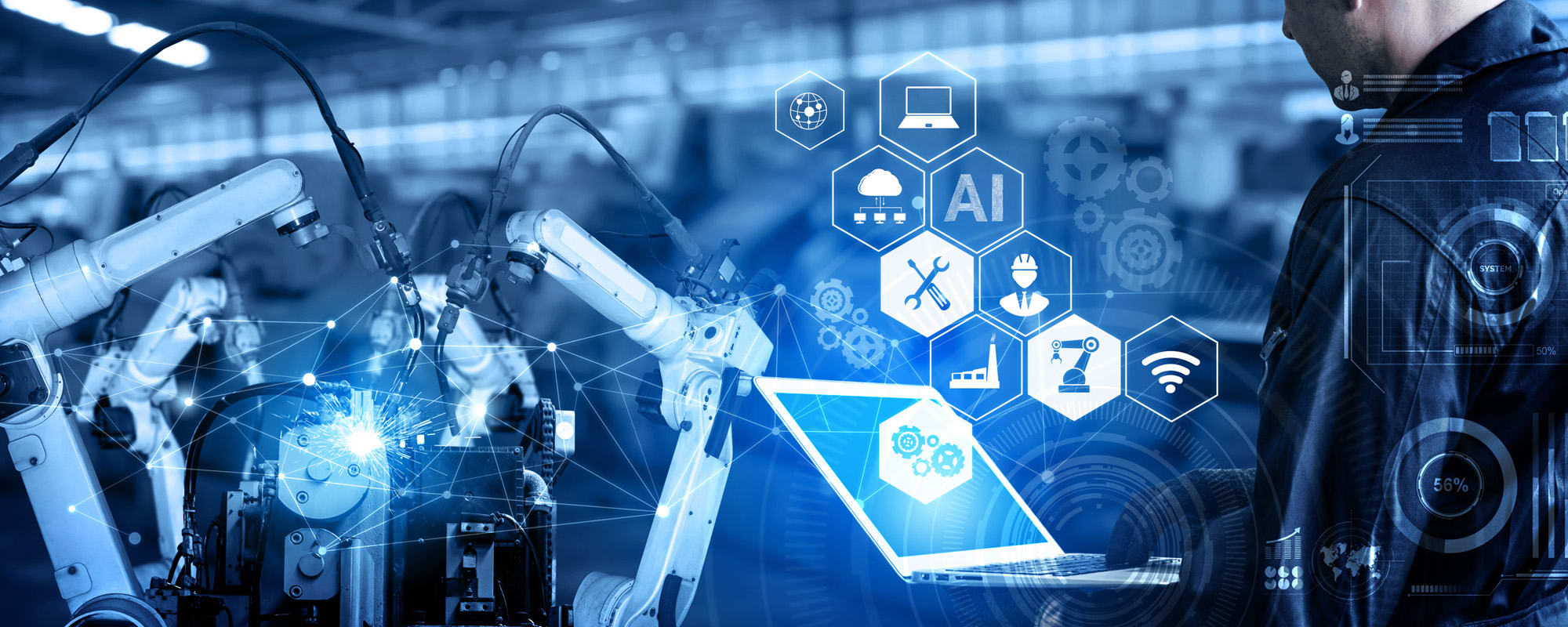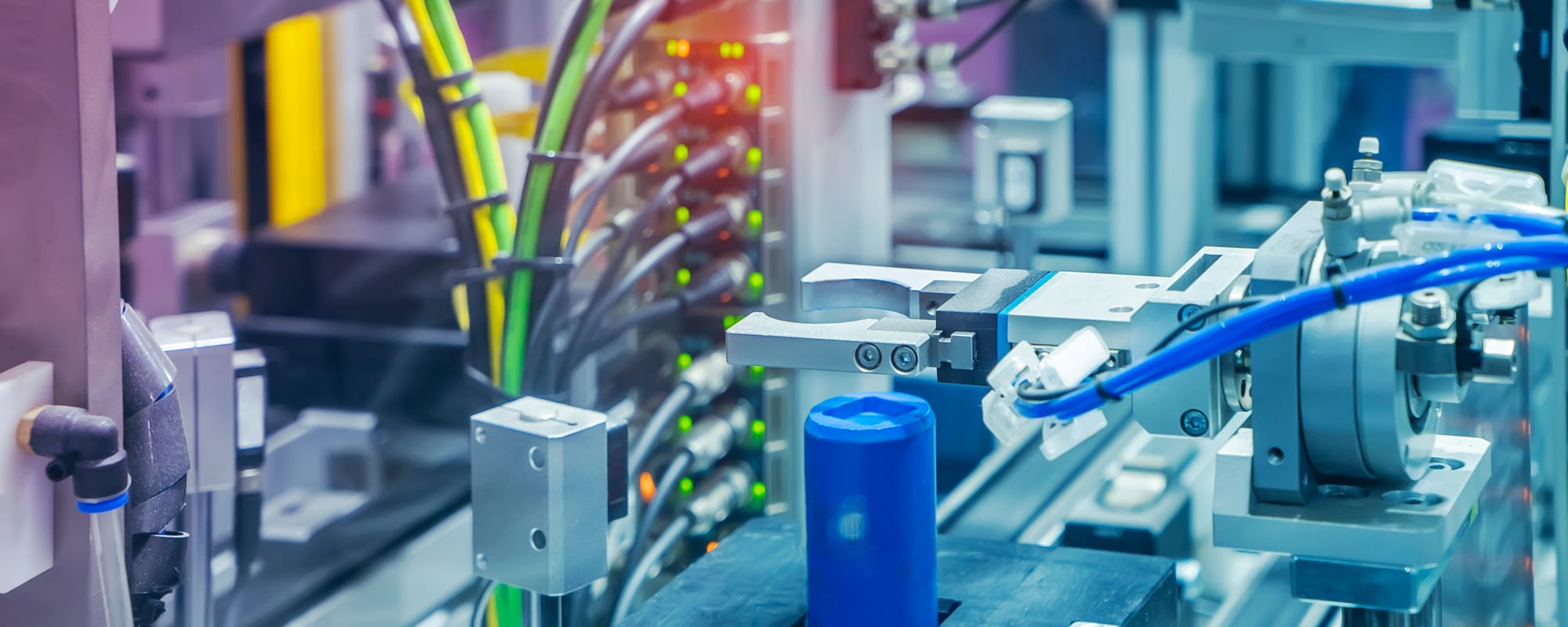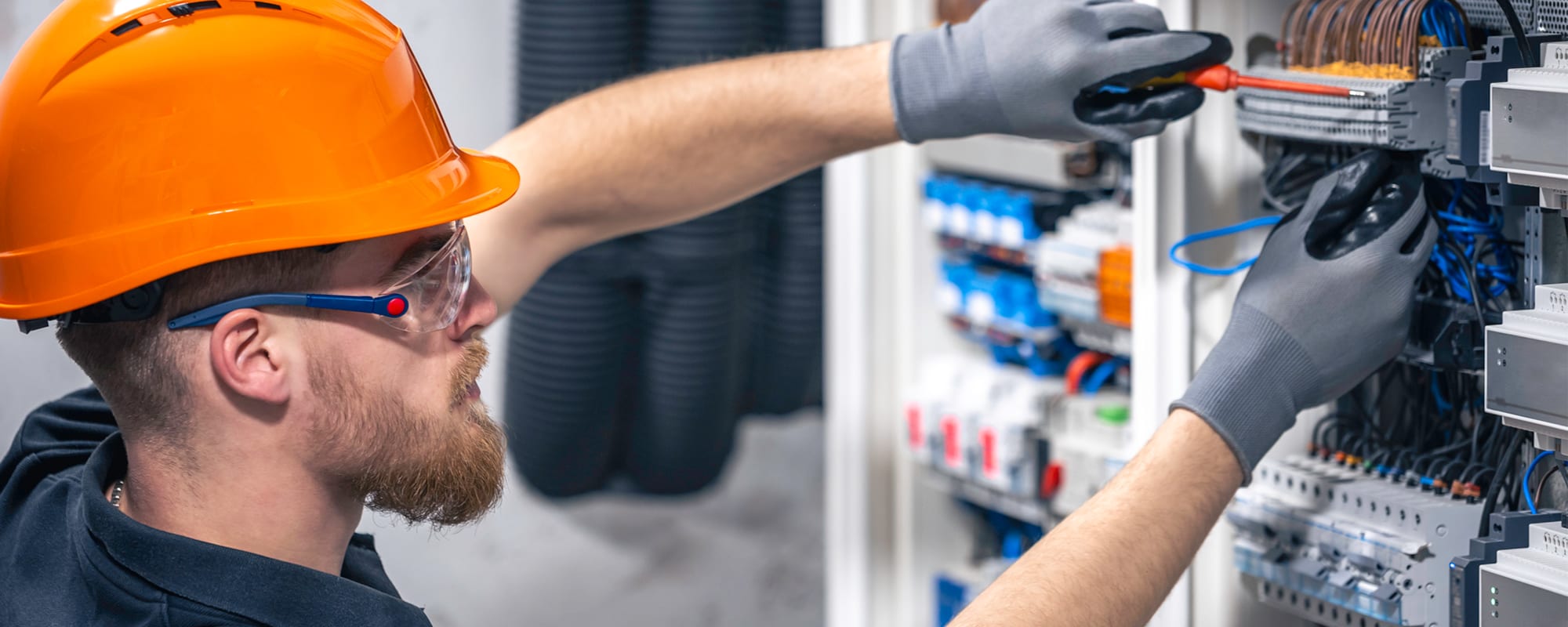The second installation of our four-part series celebrating Manufacturing Day 2024 features an interview with Frank Latino, Global Product Manager – Electric Automation at Festo, and Daniel Rodriguez, Sales Director for Festo Didactic North America, who share expert insights into the modern manufacturing industry and, in the spirit of the initiative, aim to shift its perceptions and help close the skills gap impacting its continued success.
This year, as part of our efforts to raise awareness of Manufacturing Day and Month, shift the perceptions of students, educators, parents, community leaders, and influencers, and help create long-term solutions for the skilled labor shortages impacting every sector of the industrial manufacturing industry, we interviewed four representatives with firsthand knowledge:
- Frank Latino, Global Product Manager – Electric Automation at Festo, and Daniel Rodriguez, Sales Director for Festo Didactic North America
- Barry Turner, Technical Business Development Manager at Red Lion Controls, Inc.
- Abe Fares, OEM Area Sales Manager – Gulf Region, Eaton
In this installation, we speak to Frank Latino, Global Product Manager – Electric Automation at Festo, and Daniel Rodriguez, Sales Director for Festo Didactic North America. Festo is a global leader and industrial and process automation technology and a world market leader in technical training and education. By establishing a strong link between industry and education, Festo helps customers all over the world increase their productivity and improve their sustainability.
To view the other experts’ insights, click the links embedded in the supplier names bulleted above, or keep an eye out for the next installation.

Frank Latino, Global Product Manager – Electric Automation at Festo
Frank has been at Festo for 30 years. He has held various positions in engineering and management, with increasing responsibilities in product management. His area of expertise is in network technologies and control systems for industrial automation. Frank is a member of several groups within the Open DeviceNet Vendors Association (ODVA) and the National Fluid Power Association (NFPA). He holds two patents related to pneumatic valve control and diagnostics.

Daniel Rodriguez, Sales Director for Festo Didactic North America Dan has over 10 years of experience at Festo and, during his tenure, has played a pivotal role in advancing workforce development and technical education. Prior to joining Festo, he was a design engineer at Lab-Volt Systems, where he oversaw major global education projects. Dan earned a bachelor’s degree in industrial engineering and a master’s in engineering management from the New Jersey Institute of Technology, and he actively contributes to various academic advisory boards.
1. What do you find most exciting about the rapidly evolving manufacturing industry, and how does it feel to be a part of the fourth industrial revolution or Industry 4.0?
Frank: The most exciting aspect is that we can use modern IT technology to perform OT tasks, such as diagnostics, condition monitoring, and more. Manufacturing suppliers like Festo have been incorporating diagnostics and condition monitoring features into our products for many years. But now, Industry 4.0 concepts are making the collection, transmission, and analysis of that system- and device-level information quick and easy and delivering it to the cloud, mobile devices, and on-premises systems where the data can be further analyzed or applied. It’s a good feeling to expand access to the diagnostic information we’ve had for years.
2. What do you find most challenging about the rapidly evolving manufacturing industry, and how is your organization working to overcome those challenges?
Frank: Cybersecurity is a major challenge for IT/OT organizations at manufacturers. As systems become more tied into IT technology, the risk of cyberattacks will also increase. Festo is closely following the requirements of the European Cyber Resilience Act (CRA) and is prepared to meet the requirements as soon as possible. Much of this requires documentation showing vulnerabilities, defining how to respond to incidents, and assuring a secure development process. Best practices for secure product development are also included in the process. Manufacturers who use products developed under a certified secured development life cycle (SDLC) process are doing their part to help overcome cyber challenges.
3. What major changes do you expect to see in the industry over the next 5–10 years?
Frank: Safety will continue to become more ubiquitous in component design. Security will also start to become more prevalent in networked components and systems. Higher capable protocols, such as the time-sensitive networking (TSN) protocol, will take advantage of faster network performance, improving determinism, synchronization, and parameterization. In addition, controllers that support containers will allow for multiple software apps to coexist, enabling logic control, artificial intelligence and machine learning (AI/ML) for predictive analytics, motion control, and more in a single hardware platform.
4. How does your organization’s work as a manufacturer contribute to other key industries that impact people’s everyday lives? What kinds of end products do you enable that consumers might not connect with you but wouldn’t be able to enjoy without you?
Frank: Festo is one of the few companies globally with expertise in multiple forms of motion for manufacturing automation. Festo provides interchangeable systems for both pneumatic and electric motion. We use the right technology for fast movements, precise movements, force control, and more. This often results in hybrid systems for manufacturers. The variety of this technology is used in many applications, from making and packaging beverages to building automobiles and making semiconductors. During the pandemic, Festo was designated an essential business because of the host of manufacturing and processing industries the company’s products and solutions support.
5. Why should students and young professionals consider a career in manufacturing?
Daniel: At Festo, we have the advantage of seeing both sides of the equation. As one of the world’s largest automation companies, we serve a wide range of industries and customers — from automotive, semiconductor, and food and beverage manufacturing to biotech, warehousing, and logistics — as well as develop and deliver technical education and industrial workforce training. Festo delivers products and services that enable these industries to operate efficiently and productively.
The manufacturing industry is rapidly evolving with advancements in automation, robotics, and digital technologies. While this presents exciting opportunities to work with these technologies, there is a need to develop the high-demand skills required. Manufacturing jobs today often offer competitive salaries and benefits, financial stability, and growth opportunities for individuals.
6. When people think about manufacturing jobs, they often think about machine operators or maintenance personnel. What are some other lesser known but equally vital manufacturing jobs that students and young professionals should know about?
Daniel: While machine operators and maintenance personnel are important roles in the manufacturing workforce, there are many other equally vital jobs that students and young professionals should know about and consider. Some of these roles include:
- Industrial Engineers who optimize manufacturing processes and ensure efficiency and productivity.
- Quality Assurance Specialists who ensure that products meet quality standards through inspections, tests, and audits, playing a crucial role in maintaining product quality and customer satisfaction.
- Supply Chain Managers who oversee the entire manufacturing process, from sourcing raw materials to delivering finished products. They also coordinate logistics, manage inventory, and optimize the supply chain for efficient operation.
- Research and Development (R&D) Engineers who work to develop new products and improving existing ones, explore innovative manufacturing techniques, and collaborate with cross-functional teams to bring new ideas to life.
- Environmental Health and Safety Specialists who ensure compliance with safety regulations and implement measures to protect workers and the environment. They conduct risk assessments, develop safety protocols, and promote a culture of safety within the manufacturing facility.
7. Another thing that often comes to mind when people think about the manufacturing industry is pollution. The manufacturing and construction industry is currently the world’s third-largest source of greenhouse gas emissions and, as such, has an important role to play in global sustainability efforts. What is your organization doing to reduce its environmental impact and support sustainability throughout the global supply chain?
Frank: Festo has taken many measures to reduce its carbon footprint. As far as what we provide to manufacturers in terms of products or components, we have specific products that monitor and control the use of compressed air. By monitoring the flow and pressure of compressed air, manufacturers can use this to determine if there are leaks. Rapid response to this data allows end users to fix the leaks, which optimizes machine performance and reduces energy consumption. Our products can also determine if a machine is idle and automatically turn off or reduce compressed air, which saves energy.
8. Why should people consider joining your manufacturing workforce?
Daniel: There are several reasons why people should consider joining the manufacturing workforce at Festo or elsewhere. Firstly, manufacturing companies offer a wide variety of job roles, not just on the manufacturing floor but throughout the entire organization. Opportunities exist in engineering, marketing, sales, management, and more. In fact, many company CEOs started their careers in entry-level positions. Manufacturing offers extensive career growth opportunities, and with continuous technological advancements and the need for skilled professionals, individuals can advance their careers and take on leadership roles within the industry.
Additionally, working in manufacturing provides hands-on experience, allowing individuals to work with machinery, tools, and cutting-edge technologies. This practical experience develops skills that are transferable to other parts of the economy, in jobs that can’t be exported or replaced with AI. Knowing how to use AI can make workers more productive and agile. This practical experience can be valuable for personal and professional development.
Finally, jobs in manufacturing offer competitive compensation, including competitive salaries and benefits packages. This provides financial stability and security for individuals seeking long-term career prospects.
Dive Deeper
To learn more about Festo and the Festo product solutions available at RS, click the links embedded here. For more expert insights from Festo, check out their contributions to the RS Expert Advice Series.
To learn more about the incredible impact that the American manufacturing industry has on the U.S. economy and the history of National Manufacturing Day, check out the first installation of this four-part series, “National Manufacturing Day Part 1: History and Impact.” For more expert insights into the modern manufacturing industry, click the bulleted links at the beginning of this article to access our Eaton and Red Lion interviews.







